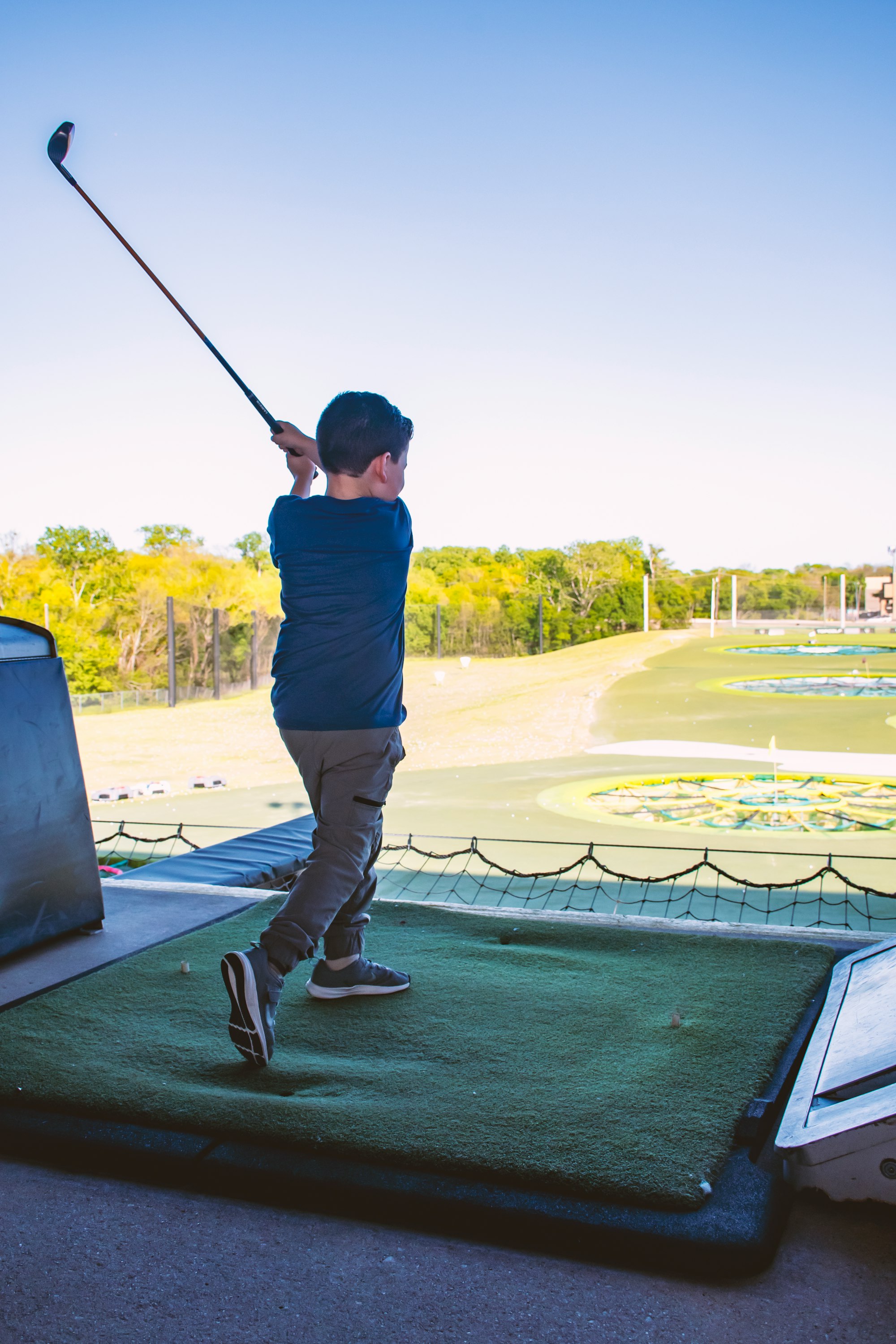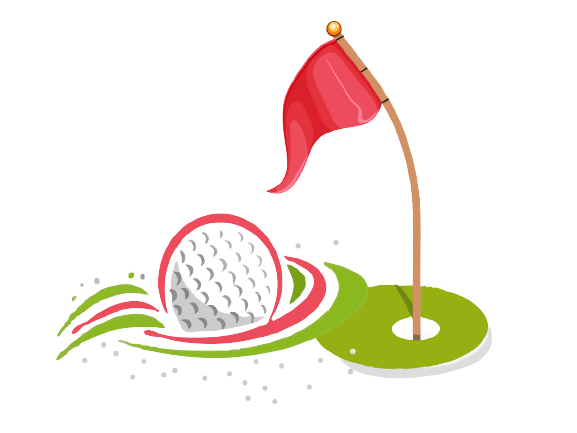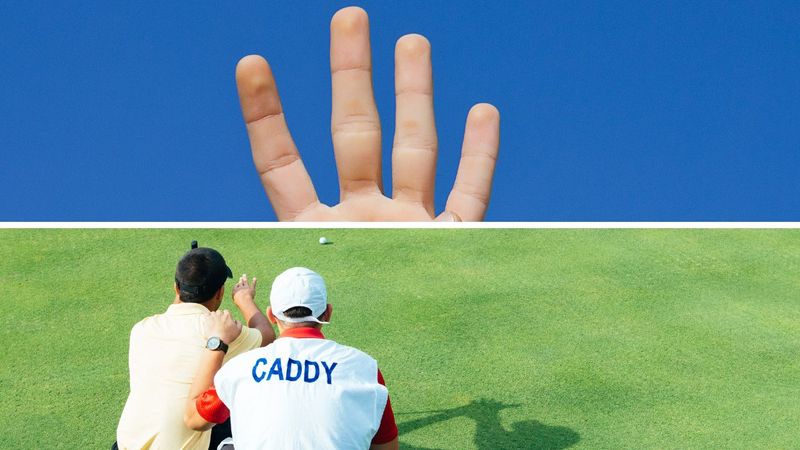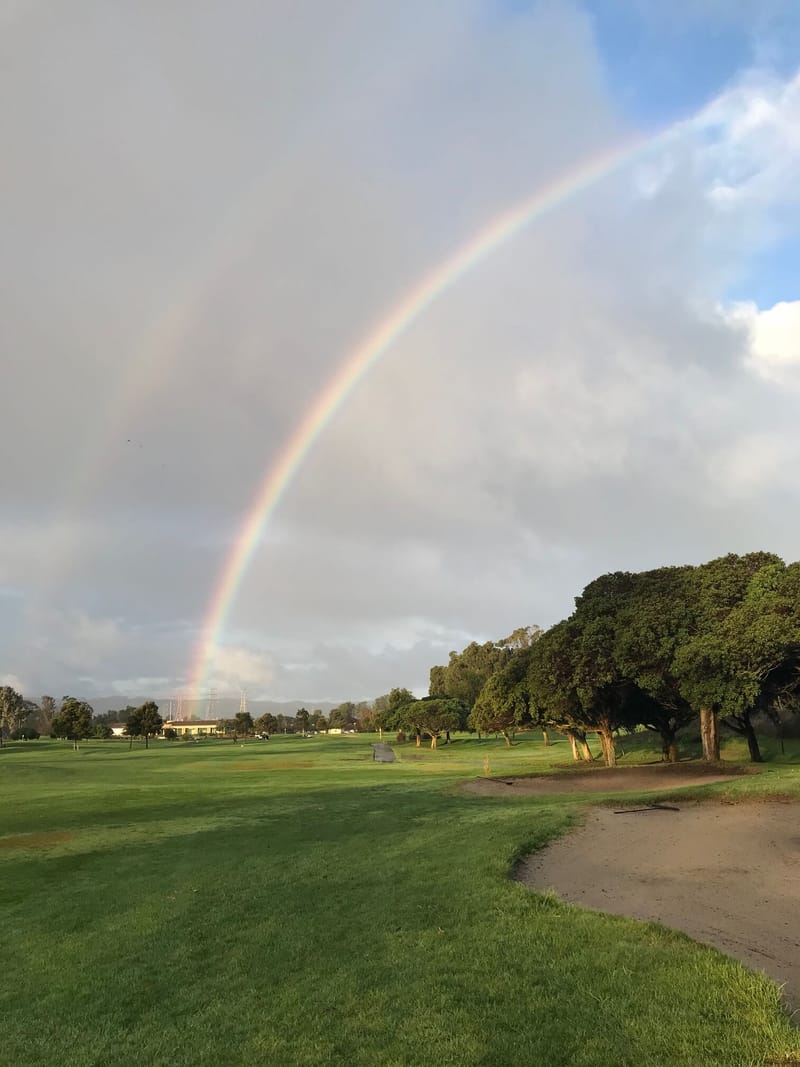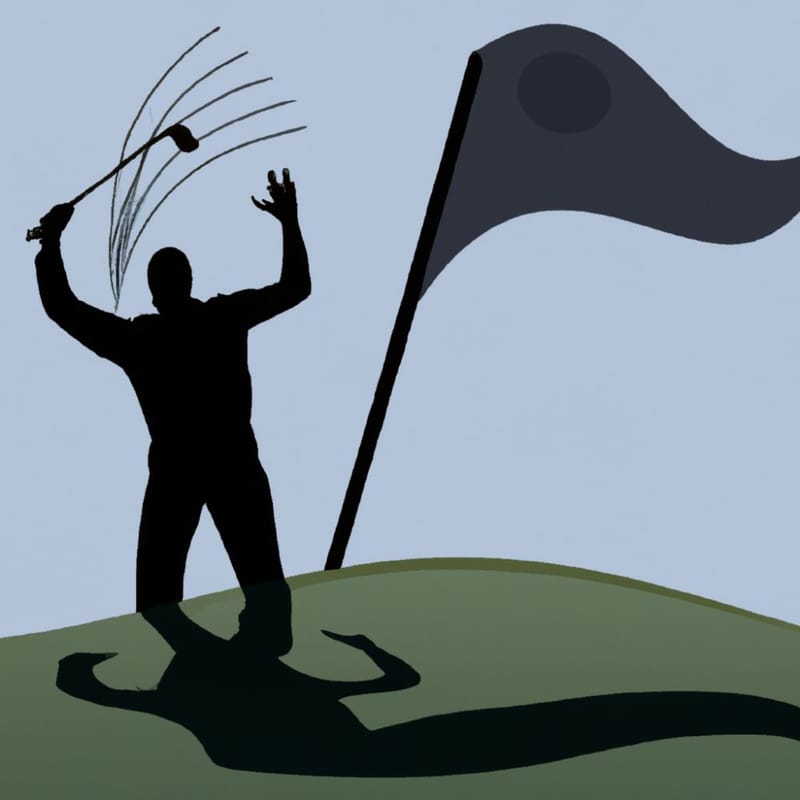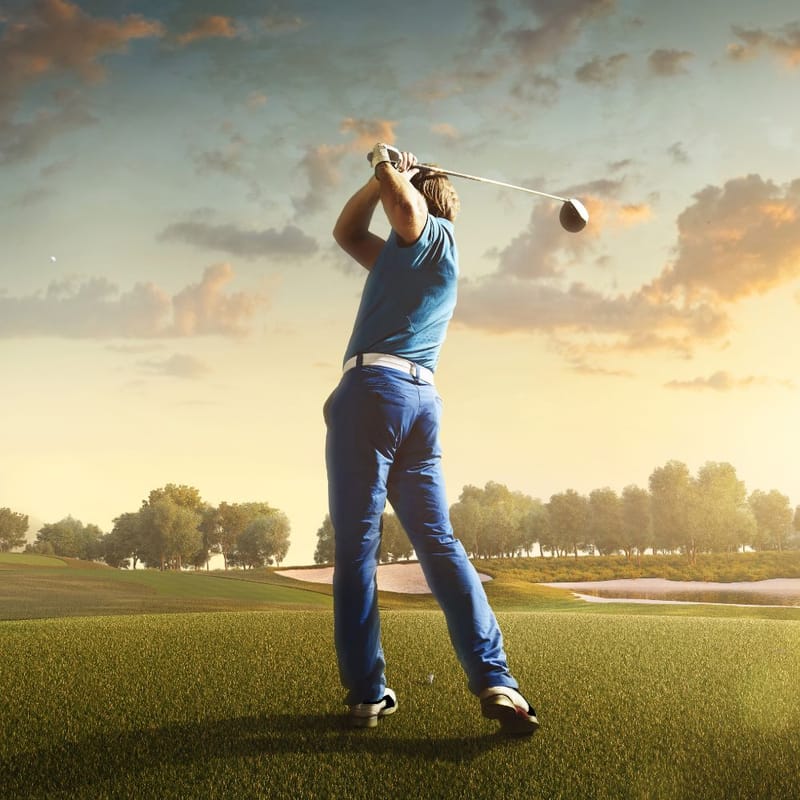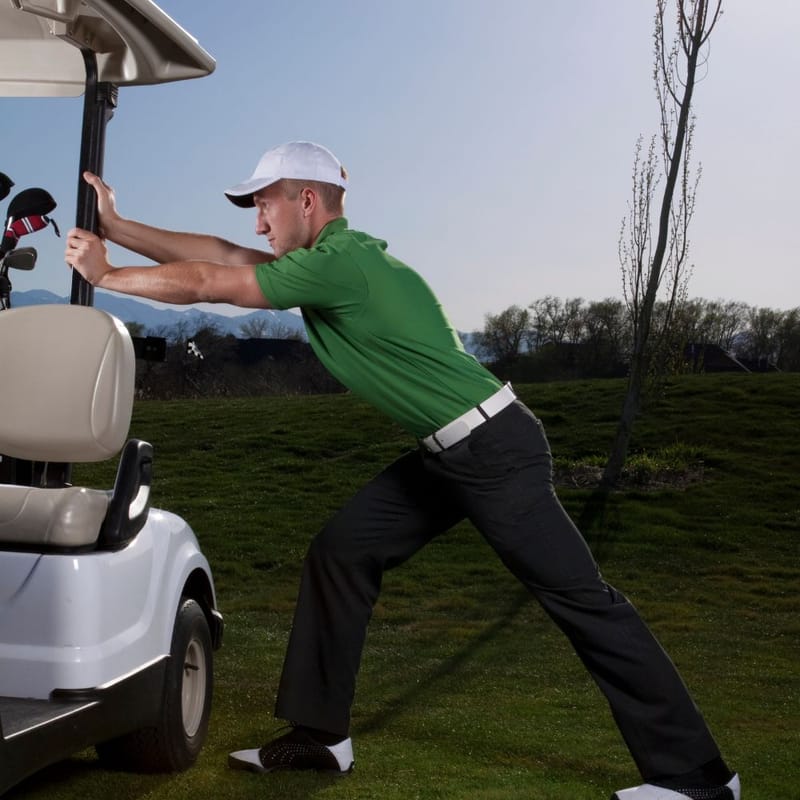Content Summary
1. Explanation of Why Golfers Yell FORE!
Golf is a sport that requires focus, skill, and awareness of one's surroundings. Golfers need to watch their shots carefully to avoid injuring other players or bystanders on the course.
One of the most common ways golfers alert others to an incoming ball is by yelling "fore!" But why do golfers yell this specific word? There are several theories as to the origin of this golfing tradition.
One theory suggests that "fore" comes from the military term "before," which was used as a warning cry during battles to warn soldiers of incoming fire. Another theory posits that it originated from Scottish slang, where "fore" meant "watch out ahead."
Failing to yell "fore" can have serious consequences for both players and bystanders. Not only can it result in injury, but it can also lead to legal liability for the golfer responsible for the errant shot. As such, it is crucial for all golfers to understand when and how to use this warning cry properly.
When a golfer hits their ball in the air towards another player or group, yelling FORE! warns them to take cover or move out of the way. Failure to do so could result in serious injury.
Not only is yelling FORE! important for safety reasons, but not doing so can lead to consequences such as being asked to leave the course. Whether you're a seasoned golfer or new to the game, remember always to put safety first and yell FORE! when necessary.
2. Brief History of the Origin of the Term
Golf is believed to have been developed in the middle ages although no one can state for a fact where it actually originated. There are games similar to golf that have been known to have been played in China during that period.
However, the word "fore" is thought to have originated from the term "forecaddie" in Scotland. A "forecaddie" was a person employed by golf courses or golfers in the 1700s and 1800s to keep track of where balls fell.
In the early days of golf, caddies would be stationed at specific points on the course to help players keep track of their balls. These caddies were known as "forecaddies," and it is thought that they would alert other players by yelling "forecaddie!" when a ball was headed in their direction.
To avoid wasting time searching for errant balls, a forecaddie would stand where they believed the balls would land. To alert the caddy to watch out for the approaching ball, the golfer would cry "forecaddie" as soon as they struck the ball.
The term "forecaddie" was abbreviated to "fore" as golf evolved, and it is currently used to caution golfers to "watch out" because it's possible that the ball will be headed their way.
The second one comes from a military perspective. In the 17th and 18th centuries, artillery batteries fired over the heads of troops as they advanced in formation.
To warn the infantry to escape the incoming shells from the sky, an artilleryman would cry "beware before" as he prepared to fire. Hence, the term "beware before" was abbreviated to "fore" in golf.
3. Importance of Shouting FORE! for Safety Reasons
Golf is a sport that requires maximum concentration and discipline from the players, as well as attentiveness to details. One of the most critical aspects of playing golf is safety.
Although "fore" might seem like just another word, it has the power to shield other golfers from dangerous harm. The typical golf ball travels at 180 mph. It could be disastrous if you were struck by anything coming at you that quickly. If your ball isn't heading in the right direction, act appropriately and yell fore.
Not yelling fore can lead to serious consequences, including injuries and even lawsuits. Getting hit by a golf ball can cause severe damage to body parts like eyes, head, or arms.
Therefore, it is crucial for every golfer to shout fore loud enough when they hit a shot off-target so that everyone around them can hear it clearly and take appropriate action before anything dangerous happens.
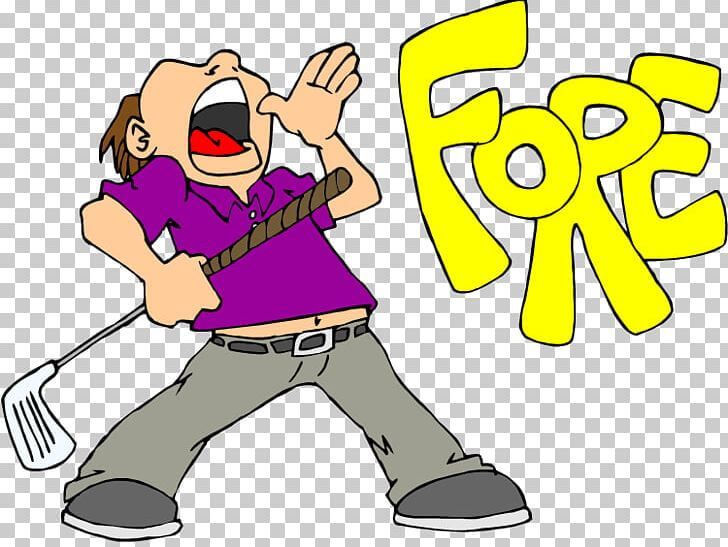
USGA Rule 11.1: Rule 11 covers what to do if the player’s ball in motion hits a person, animal, equipment or anything else on the course. When this happens accidentally, there is no penalty and the player normally must accept the result, whether favourable or not, and play the ball from where it comes to rest. Rule 11 also restricts a player from deliberately taking actions to affect where any ball in motion might come to rest.
4. Definition of Forecaddie and Their Role
A forecaddie (known as a spotter today) is a person who assists golfers in finding their ball on the course. They are essentially an additional set of eyes, helping players locate balls that may have gone off course or landed in difficult-to-see areas. Forecaddies are typically employed by golf courses and can be hired by individual groups for a fee.
The role of a forecaddie is to help speed up play and make the game more enjoyable for everyone involved. By locating balls quickly and efficiently, they can reduce the amount of time spent searching for lost balls or navigating challenging terrain.
Additionally, forecaddies can provide valuable advice on club selection and strategy based on their knowledge of the course.
Forecaddies are often used in tournament play, where every stroke counts and accuracy is crucial. They can help ensure fair play by verifying shots and keeping track of each player's score.
Overall, forecaddies play an important role in the game of golf, helping to make it more accessible and enjoyable for players at all skill levels.
5. When Should You Yell "Fore"?
With consideration for the other golfers on the course, it is the player's duty to cry "FORE" as loudly as they can if a poor shot even has a remote probability of hitting another golfer or spectator.
The sport of golf itself is known as a "gentlemen's game." In the event that you accidentally hit another player (God forbid), choosing to yell fore will at least show that you tried to warn them first.
After a certain number of rounds, screaming "fore" will come naturally. It's also polite to shout "Fore Left!" or "Fore Right!" to help inform other players or spectators of the direction the ball is headed.
6. How Bad Is It to Not Yell "Fore"?
One of the first laws of "proper golf etiquette" that is taught to young players is to always shout "FORE!" whenever your errant shot might possibly hurt someone.
Golfers get really angry when someone chooses to remain silent when a mishit shot could hit someone because this is such a recognized term and rule in the game and this simple courtesy could prevent serious injury to someone.
Many golfers who started playing later in life are too self-conscious to yell fore because they are worried about what other people might think of them.
Because there can be a great amount of noise on golf courses it may be difficult for someone to hear you yelling fore, so it's a good idea to keep yelling and waving your arms if the person in danger is not responding initially.
7. Why Do Professionals Get Away With Not Yelling "Fore"?
Professional golfers are not exempt from yelling "fore," but they may not do so as often as amateur players. You probably don't hear pro golfers yell fore because in tournament golf they often have spotters to help them keep track of where their shots are headed.
However, spotters are not perfect, and spectators can still be at risk of getting hit by a ball. It's important for all golfers to prioritize the safety of others on the course and to always yell "fore" when necessary. Awareness and good etiquette are key in making sure everyone can enjoy the game of golf without the risk of injury.
8. What Are You Supposed to Do When You Hear "Fore"?
If you hear a golfer yell fore, don't glance at the person shouting fore when you are in the danger zone and don't look to see where the ball is coming from. You risk getting struck in the face or other parts of your body if you do it.
You should just "duck and cover" instead by hiding behind a tree, golf cart, golf bag, etc. Then crouch into the tightest position you can making yourself as small a target as possible. Cover your head with your arms.
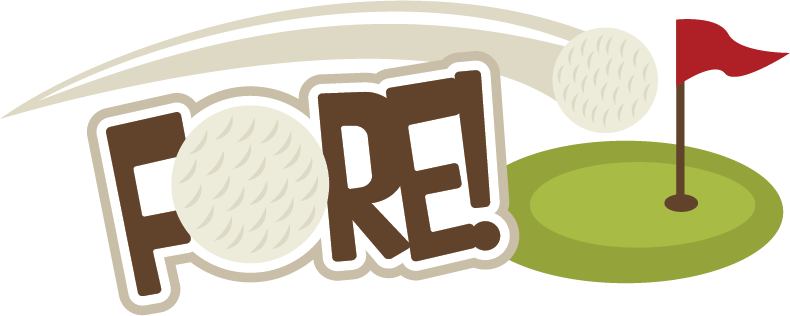
True Story:
I was out playing with a friend and his 6'1" 200 pound son who was new to the game. His son's wayward shot off the tee ended up on the right side of the fairway in the rough.
I was on the left side of the fairway at least 160 yards away and feeling pretty safe from any errant shot he might hit.
Since he was in the rough I did not think his shot would travel far. His next golf shot was a dead left pulled hit streaking at me like a bullet.
I crouched over, covered my head and the ball hit my right thigh. After a couple of days the whole right side of my thigh was black and blue. Very painful experience I would wish on no one.
Conclusion
The origin of why golfers yell "Fore!" remains a topic of debate among golf enthusiasts. Regardless of its origin, it is a universally recognized term in golf and an essential aspect of golf etiquette.
When someone yells "Fore!" it is not only a courtesy to other players and spectators but also a safety precaution. It is the responsibility of every golfer to shout "Fore!" if their shot could potentially harm someone.
While professional golfers may not always shout "Fore!", it is still a crucial aspect of the game for amateur players. Ultimately, it is important to prioritize safety and respect to keep fellow golfers safe on the golf course at all times.
Thank you for visiting, and we hope to see you back soon!
